Vietnam: What are the sample argumentative essays on the Relationship between Humans and Nature in "Salt of the Forest/Muối của rừng" for 12th-grade students?
What are the sample argumentative essays on the Relationship between Humans and Nature in "Salt of the Forest/Muối của rừng" for 12th-grade students in Vietnam?
In "Salt of the Forest/Muối của rừng," Nguyen Huy Thiep delves into the relationship between nature and humans. The work sends readers wake-up calls about the true value of nature, stirring human conscience. Therefore, there are many argumentative essays exploring this theme. Below are some sample argumentative essays on the Relationship between Humans and Nature in "Salt of the Forest/Muối của rừng" in the Grade 12 literature curriculum that students can refer to:
Sample 1
Nguyen Huy Thiep is an author who brought new waves to the Vietnamese literary scene with diverse literary styles and a unique writing approach. In "Salt of the Forest/Muối của rừng," Nguyen Huy Thiep delves into the relationship between nature and humans. The work sends readers wake-up calls about the true value of nature—stirring human conscience. So what is the relationship between humans and nature, why is it necessary to maintain it, and what should we do?
First and foremost, the relationship between humans and nature is a strong, inseparable bond. It exists eternally, and nature and humans coexist and support each other. Humans can survive for a certain period if isolated from the social environment, but they cannot live without air to breathe, water to drink, food, nor can they produce without soil, water, and sunlight. Humans are born from nature, nature determines human life, and humans determine the fate of nature. Humans are both products and subjects of resources and the environment. Humans exist because they need resources provided by the environment; moreover, human activities strongly impact and change the environment.
However, within this relationship, nature provides us with countless benefits. Yet, we often fail to respect, protect, and preserve it. We exploit natural resources irresponsibly. We pollute water and air resources with toxic waste from factories, enterprises, and daily transportation.
All forests are being destroyed by us; we burn forests and cut down trees to seek profits for ourselves without considering others. Sources of benefits that seem infinite, if not preserved and maintained, will lead to resource depletion and environmental pollution, causing ozone layer depletion, global warming, and increasing risks of droughts and floods. We have contributed to creating harmful impacts on our own lives. Nature plays a crucial role for all humans and living creatures on Earth. Thus, we must know how to exploit, use sustainably, and preserve nature as an invaluable asset.
Through media, we are informed about the increasingly polluted state of the natural environment, the Earth's crust warming up, more natural disasters, and humanity facing global climate change. Environmental changes negatively affect human health, and diseases are increasing. Human life is distancing itself from the natural environment due to urbanization's impact.
Facing these negative realities, each of us should have a proper understanding of the environment's importance to human life. Let us join hands to protect the environment through various activities both domestically and internationally. Improving the environment is a process that takes time; therefore, each of us should choose a solution to care for our health and our family amidst the current environmental conditions.
Thus, "Salt of the Forest/Muối của rừng" is a perfect work for people to reassess their position on the balance of nature and humanity. The work rings an alarm about the genuine value of nature—awakening human nature—a message urging people to always protect, cherish, and shelter nature.
Sample 2
Nguyen Huy Thiep, a talented figure in Vietnamese literature, has demonstrated uniqueness and creativity through new waves in literature, particularly in his distinctive "non-replicative" style. His work "Salt of the Forest/Muối của rừng" is not only a prominent literary piece but also an aphoristic work on the special relationship between humans and nature.
In "Salt of the Forest/Muối của rừng," Nguyen Huy Thiep explores a new depth of the complex relationship between humans and nature. The work is not just a story but a profound dialogue about the connection and mutual support between these two worlds. The wake-up call about the true value of nature in the work is not only a cultural message but also an awakening of human nature.
The relationship between humans and nature is inseparable. It is a strong bond that exists from one generation to another. Nature is not only the creator of humans but also the source of air, water, food, and energy. Humans, on the other hand, are the subjects and creators but also the ones responsible for managing and protecting nature. This relationship is not a one-sided benefit but a mutual support and coexistence.
While nature provides countless benefits to humans, we often optimistically do not respect, protect, or preserve them. Irresponsible exploitation of natural resources, environmental pollution, and the destruction of rich forests are challenges humans pose to themselves. Every resource provided by nature seems endless, but if not preserved and used sustainably, we face the risk of resource depletion and environmental destruction.
In fact, through "Salt of the Forest/Muối của rừng," Nguyen Huy Thiep has opened the door for humans to reconsider their position in the world, placing themselves in the larger context of the human-nature relationship. The work reminds us to awaken to our role in protecting and respecting nature. Facing challenges like climate change, pollution, and biodiversity loss, we need to take positive actions, not only to protect the environment but also to protect our own lives.
Overall, "Salt of the Forest/Muối của rừng" is not just a literary work, but a profound lesson on the relationship between humans and nature, reminding us of every individual's responsibility and obligation to maintain and protect this precious resource for future generations.
Note: Information is for reference purposes only!
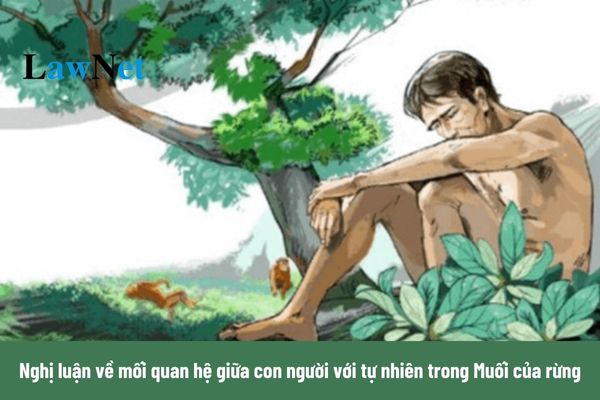
What are the sample argumentative essays on the Relationship between Humans and Nature in "Salt of the Forest/Muối của rừng" for 12th-grade students in Vietnam? (Image from the Internet)
What learning outcomes are required for the content of writing practice in the 12th-grade Literature curriculum in Vietnam?
Under the General Education Program for Literature issued with Circular 32/2018/TT-BGDDT, the learning outcomes required for the content of writing practice in the 12th-grade Literature curriculum in Vietnam are as follows:
- Be able to write a speech for the launch of a movement or social activity; present a system of arguments; have a tight structure, with an impressive beginning and end; use convincing arguments and evidence: accurate, reliable, appropriate, comprehensive; able to pose counterarguments for exchange and debate; use explanatory and expressive elements.
- Be able to write an argumentative text on an issue related to youth.
- Be able to write a comparative essay evaluating two literary works.
- Be able to write documents in the form of work-related correspondence or on a topic of concern.
- Be able to report the results of a project assignment or research on a natural or social issue; use diagrams, tables, explanations of illustrative images, citations, and footnotes, and know how to present the reference materials section.
What are the duties of 12th-grade students in Vietnam?
Under Article 34 of the lower secondary school, upper secondary school and multi-level school charter issued under Circular 32/2020/TT-BGDDT, the duties of 12th-grade students are as follows:
- Learn and train according to curricula and education plans of their schools.
- Respect their parents, officials, teachers and staff of their schools, and those older than them; maintain solidarity and mutual support in learning and training; conform to the charter and rules of their schools; and abide by the law.
- Take exercises and maintain personal hygiene.
- Participate in group activities of their schools and classes, Ho Chi Minh Young Pioneer Organization and Ho Chi Minh Communist Youth Union; help their families, join physical and social activities and environmental protection activities, and maintain traffic order and safety.
- Protect school and public property; contribute to fostering, preservation and enhancement of school traditions.


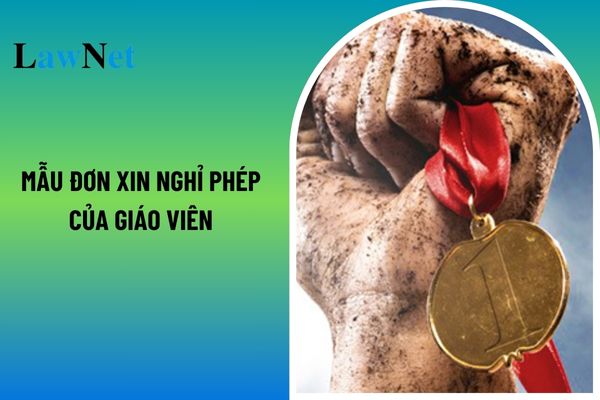
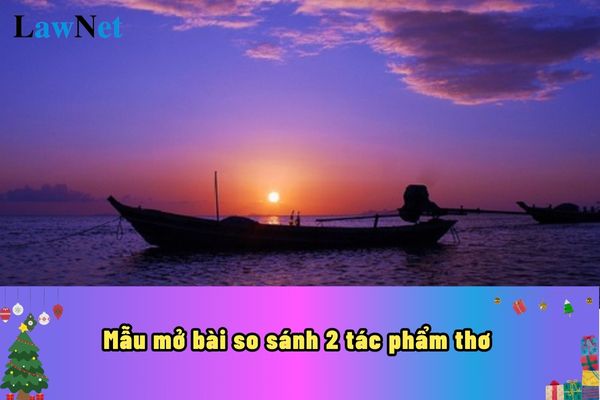


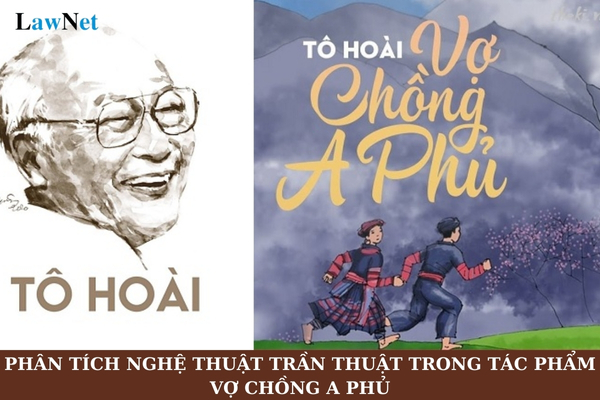
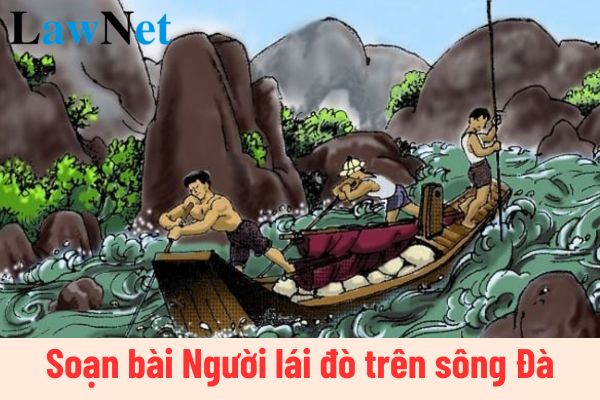
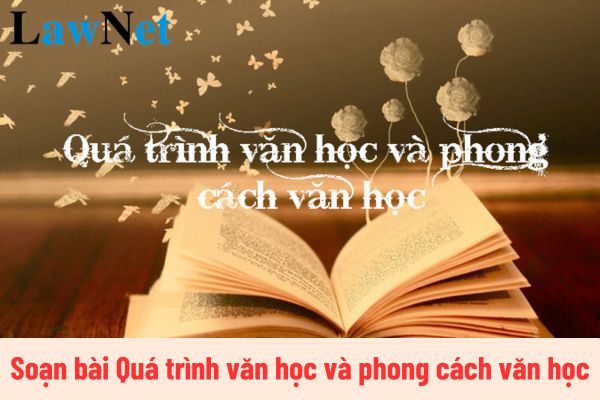
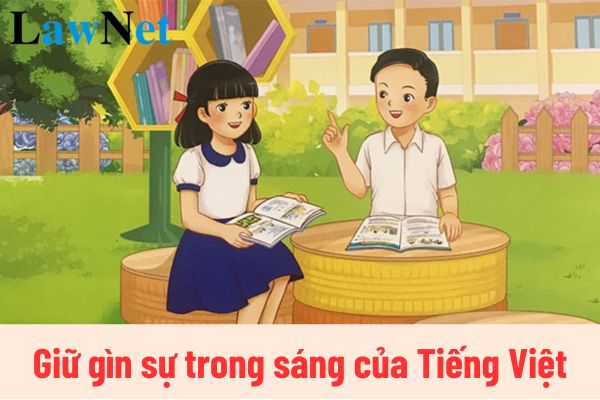
- Vietnam: What is the sample report on a modern literary matter - innovations and renovations in the short stories "Chiếc thuyền ngoài xa" and "Một người Hà Nội"?
- Vietnam: What are the 05 sample 600-word argumentative essays on negative issues among youth today? How many types of texts are there in the content of the 12th-grade Literature curriculum?
- Vietnam: What are the best sample paragraphs about your family for 6th-grade students? What elective subjects do 6th-grade students learn?
- Vietnam: What are the best sample self-introductions in English for 5th-grade students? What topics are covered by the 5th-grade English curriculum?
- Vietnam: What are the sample imaginary paragraphs on Tin-tin and Mi-tin entering the magical garden for 4th-grade students? What are the 05 essential qualities required for 4th-grade students?
- Vietnam: What are the guidelines for preparing the briefest lesson "A Strange Tale of the Fisherman's House/Truyện lạ nhà thuyền chài"? What is the eligibility for lower secondary graduation recognition for 9th-grade students?
- What are the enrollment methods of Pham Ngoc Thach University of Medicine in 2025?
- Vietnam: What are the sample 1st end-of-semester question papers of 9th-grade Literature? What is the form of assessment for 9th-grade Literature?
- Vietnam: What are the 10 sample 200-word social argumentative paragraphs on the strength of discipline? Is improving manpower one of the goals of education?
- What are the sample social argumentative essays on a social issue raised from a literary work in the 8th-grade Literature curriculum in Vietnam?

